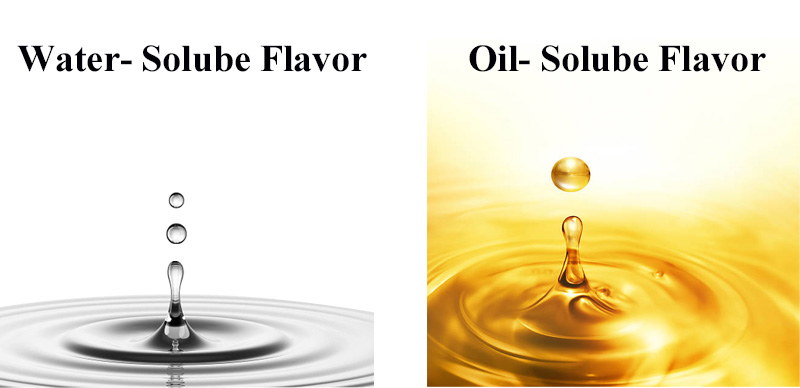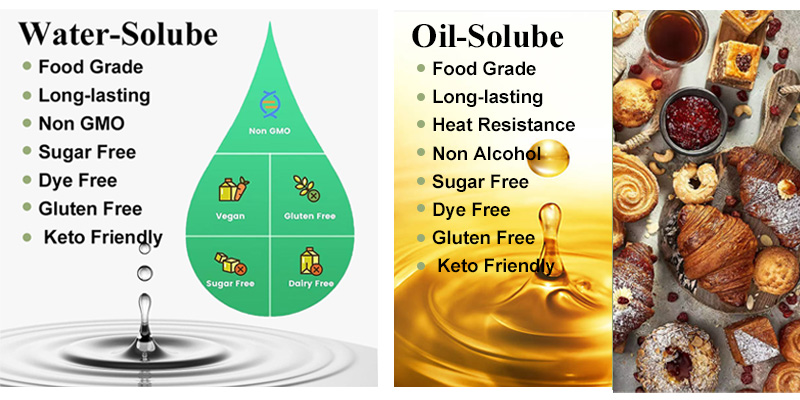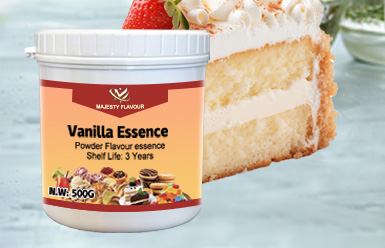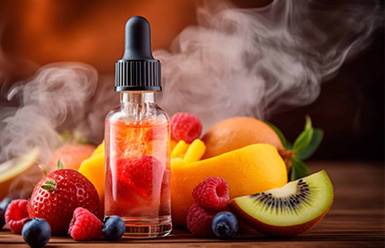BKS Flavor(Hangzhou) Co.,Ltd
22 years expert at providing our customers with tailor-made solutions in food flavorsBKS Flavor(Hangzhou) Co.,Ltd
22 years expert at providing our customers with tailor-made solutions in food flavors
How to choose water-soluble and oil-soluble flavors?
How to choose water-soluble flavors and oil-soluble flavors depends on your application, desired texture, and compatibility with other ingredients.Each type offers unique characteristics and benefits, making them suitable for different applications. In this guide,we will delve into the distinctions between these flavoring options:

1. Understanding the Composition and Properties:
Water-Solube Flavour:
Water-Soluble are compounds that effectively disperse and blend with water-based substances. They consist of flavoring agents encapsulated in water-soluble carriers, allowing for easy incorporation into various aqueous mediums. These flavors are typically derived from natural or artificial sources and are carefully formulated to ensure optimal flavor dispersion. Their key properties include high solubility in water, rapid flavor release, and versatility in a wide range of applications.
Oil-Solube Flavour:
Oil-soluble flavors are designed to be compatible with oil-based substances. These flavors utilize lipid-based carriers that effectively dissolve in fats, oils, or other hydrophobic media. The lipophilic nature of oil-soluble flavors allows for enhanced stability and prolonged flavor release, making them ideal for products that contain high-fat content. Their properties include excellent dispersion in oil, prolonged flavor intensity, and compatibility with lipid-based ingredients.

2.Application:
Water-Solube Flavour:
Water-soluble flavors find extensive use in a variety of applications. Their ability to blend seamlessly with water-based ingredients makes them a popular choice for beverages, including flavored waters, juices, sodas, and sports drinks. They are also widely utilized in bakery products, such as cakes, cookies, and pastries, where their quick flavor release ensures consistent taste throughout. Additionally, water-soluble flavors are commonly used in dairy products, confectioneries, and syrups, adding a burst of flavor to these delectable treats.
What are Water-Soluble Flavors Most Commonly Used In?
Water-soluble food flavorings are perfect for:
● Beverage: tea, smoothies, spirits, beer, wine, sparkling water, wine and coffee.
● Baked goods such as cookies, brownies, cakes and to flavor frosting condiments
● Candy centers
● Vinegar
● Jam and jellies
● Supplements
● Do not use water soluble flavorings for chocolates, tinctures, salad
● dressings and other fat soluble products.
Oil-Solube Flavour:
Oil-soluble flavors are favored in applications that contain fatty or oil-based ingredients. These flavors excel in enhancing the taste of products such as chocolates, candies, cookies, and snack foods. Their compatibility with fats and oils ensures a harmonious flavor distribution within these indulgent treats. Furthermore, oil-soluble flavors are extensively used in the production of sauces, dressings, and savory snacks, where their longer-lasting flavor release and resistance to heat provide a consistent and robust taste experience.
What are Oil-Soluble Flavors Most Commonly Used In?
● Oil-based flavorings are ideal for:
● Flavored Oils
● Baked Goods
● Hard Candies
● Gummies
● Ice Creams
● Salad Dressings
● Roasting Nuts
● Pastas
● Sauces

3. Differences & Similarities
So what is the easy way to know the flavors is Oil-soluble Flavor or Water-soluble Flavor? It is very easy. You just need look at the ingredients list of flavors. If the solvent is ethanol, it is water-soluble. If it is salad oil, it is oil-soluble. If it is propylene glycol, it is oil-water.
As a manufacturer of specially produce high-quality food flavour, we possess senior flavorist team, well-experience to produce, up-market technical equipment to service our customer.



Name: Tina Chen
Mobile:+86-15267435745
Tel:+86-15267435745
Whatsapp:8615267435745
Email:sales@cngreatflavor.com
Add:Gaoxing Development Zone, Hangzhou City, Zhejiang Province, China